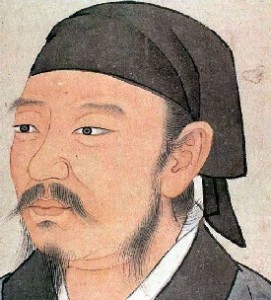"By three methods we learn wisdom: first, by reflection, which is the noblest; second, by imitation, which is the easiest; and third, by experience, which the bitterest."
-Confucius
Confucianism is commonly considered the mainstream of Chinese and East Asian tradition. However, it can also be seen as a "Western invention" because there was no word or concept that corresponds with the English word Confucianism; the closest Chinese word is Ru which refers to scholars who study the classics.
Despite being accredited with the
development of this philosophy and way of life, Confucius himself did not
believe that he had started this philosophy. He rather viewed himself as a
transmitter bringing back the ideas and traditions of the legendary Sage Kings.
Confucius also was admirer of the Duke of Zhou and tried to incorporate many of
the Duke’s ideals of allegiance and honoring vows[1].
Due to this admiration, Confucius began to teach about the importance of
cultural values and social norms for the maintenance of interstate. He also
emphasized that domestic order was predicated on a shared political vision,
namely, that authority lies in universal kingship, heavily invested with
ethical and religious power by the “mandate of heaven”, also known as tianming,
and that social solidarity is achieved not by legal constraint but by ritual
observance. Its implementation enabled the Western Zhou dynasty to survive in
relative peace and prosperity for more than five centuries.[2]
[1] Mark Cartwright "Confucius."
Ancient History Encyclopedia. https://www.ancient.eu/Confucius/. [accessed November 29, 2017].
[2] Richie, Jeffrey Richie.
"Beginnings." Patheos. http://www.patheos.com/library/confucianism/origins/beginnings [accessed November 28, 2017].
Figureheads:
·
Confucius: originating
from the small state of Lu, Confucius started to write some of his philosophies
during the Warring States Period. This period ushered in a state of confusion
as identities and traditions were lost. Through his work, Confucius was able to
compile various unified traditions into books and teach them to his students.
Although the tradition has the same name as him, Confucianism is primarily
memorialized for its sayings and biographical fragments recorded in the
Analects. Furthermore, he is most remembered for his claim that Tian ("Heaven") is aligned with
moral order but dependent upon human agents to actualize its will, his concern
for li (ritual propriety) as the instrument through which the family, the
state, and the world may be aligned with Tian's moral order, and his belief in
the "contagious" nature of moral force (de), by which moral rulers
diffuse morality to their subjects, moral parents raise moral children, and so forth.
·
Mencius: he is considered
of second most important teacher after Confucius. He most remembered for his expounded
the belief that human nature is essentially good. Furthermore, he is most
famous for his theory of human nature, according to which all human beings
share an innate goodness that either can be cultivated through education and
self-discipline or squandered through neglect and negative influences, but
never lost altogether. Although these views did not gain much traction in the
early Chinese philosophical circles, they eventually gained support in the
later medieval periods.
·
Xunzi: he
provided a slightly more pessimistic about human nature and he, therefore,
stressed the importance of education and ritual to keep people on the right
moral track. He is also most known for his belief that ritual is crucial for
reforming humanity’s original nature. Xunzi was convinced that human nature
lacks a moral compass, and left to itself falls into contention and disorder.
Therefore, ritual becomes necessary for a stable society. He focused on
humanity's part in creating the roles and practices of an orderly society, and
gave a much smaller role to Heaven or Nature as a source of order or morality
than most other thinkers of the time.


